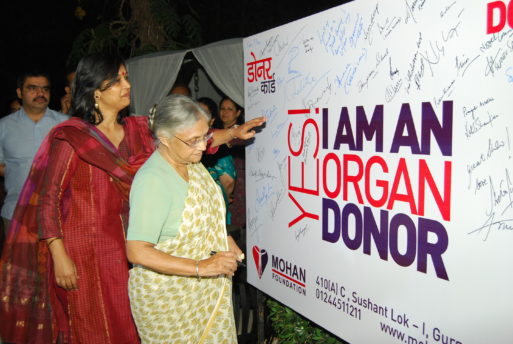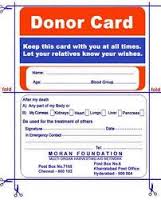
Credit: wikimedia.org
How old is your liver? Your heart? Your kidneys? Many people believe that they’re all the same age, and that as these organs get older, they become less desirable to patients waiting on transplant lists. However, new studies are finding that organ donors can and should stay on the eligible donor list, even after the age of 65. In fact, older transplant patients often rely on elderly donors to get the transplants they need.
According to the University of Glasgow, an organ’s biological age actually matters more than its chronological one. Researchers at the university studied how well kidneys worked after they were transplanted, and they found that the donor’s chronological age didn’t always make a difference in the kidney’s overall functionality.
Instead, the study found that kidneys worked about as effectively in their new hosts as they did in their donors’ bodies. They found that kidneys with a healthy level of microRNAs (a molecule that is essential for cell function) were more likely to function without complications than kidneys that lacked these essential molecules.

Credit: flickr.com
In many cases, elderly organ donors have a relatively healthy level of microRNAs present, and as a result, their organs are perfectly suited for donation. Likewise, some young donors could have abnormally low levels of microRNAs in their organs, which means their recipients will be more prone to complications post-surgery.
What this tells current and prospective organ donors is that there is no need to change your organ donor status as you age. As long as your organs function normally and aren’t damaged, you are eligible for donation, whether you’re 22 or 82.
These findings are potentially lifesaving for elderly patients who are on organ transplant waiting lists. It often takes years for patients to clear the waiting list, and for patients over age of 65, this is usually time that they don’t have. Having a list of eligible donors over the age of 65 helps recipients of the same age receive the care they need.
However, although it’s true that you are eligible to donate at any age, and that your levels of microRNA could be healthy relative to your age, your organs still lose functionality over time. A doctor would never transplant a 75-year-old’s liver into an 18-year-old’s body. Even the healthiest 75-year-old liver will show some signs of aging, and will fail much more quickly than an organ taken from a younger donor.

Credit: wikimedia.org
Instead, donors over the age of 65 give people their own age a chance at a longer, higher-quality life. Although doctors wouldn’t transplant a 75-year-old’s liver into a young patient, they would be willing to perform that transplant on a patient of a similar age who is, for instance, 70 years old.
Only about seven percent of all organ donors are over the age of 65. Doctors say that this isn’t nearly enough to cover all of the elderly patients currently awaiting transplants. People over the age of 65 who die from natural causes often have at least one organ that would be an excellent candidate for donation, however, many people aren’t aware that they’re able to donate past a certain age.
Even if disease has impacted some or most of a person’s organ’s, they could still donate any remaining healthy organs. My own grandfather kept his organ donor card until his death last year, and despite having severe lung damage and organ failure from COPD, he was able to donate his healthy corneas to a patient in need. Without my grandfather’s donation, his recipient might never have received the life-changing operation that allowed that patient to live a better-quality life.

 Older Transplant Patients Rely Heavily on Organ Donors Over the Age of 65
Older Transplant Patients Rely Heavily on Organ Donors Over the Age of 65



 How to Comfort A Dying Loved One
How to Comfort A Dying Loved One
 Our Annual Seven Holiday Gifts for Someone Who Is Grieving, 2024 Edition
Our Annual Seven Holiday Gifts for Someone Who Is Grieving, 2024 Edition














